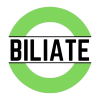What if you could talk about anything—yes, anything—and reach more people without worrying about censorship or limited visibility?
That’s the promise behind Meta Policy Shift, a bold move that’s sparking conversation across the creator community.
Mark Zuckerberg’s announcement to ease restrictions on fact-checking and political content on platforms like Instagram is shaking up the creator landscape.
The burning question is: Will this Meta Policy Shift unlock new earning potential for creators, or will it lead to unforeseen challenges?
Meta Policy Shift: New Freedom for Creators

Credits generated image from BlackBox AI.
Meta Policy Shift is designed to empower creators by removing fact-checking for specific topics and loosening restrictions on political content. This means creators can now explore bold, controversial, or sensitive subjects without fear of suppression or demonetization.
The result?
Opportunities to dive into trending discussions, engage niche audiences, and unlock diverse monetization pathways.
For instance, brands seeking authentic voices for complex topics may feel more inclined to partner with creators who embrace this newfound freedom.
This could lead to fresh sponsorship deals in areas like activism, social justice, or political commentary, where loyal and engaged audiences are eager to support creators they trust.
Beyond sponsorships, creators can also leverage passionate fanbases through direct monetization methods like paid subscriptions, live events, or donations tied to these expanded topics. Additionally, the broader visibility enabled by Meta Policy Shift could lead to higher ad impressions, boosting revenue streams even further.
The Challenges of Meta Policy Shift
However, this freedom isn’t without its downsides. Critics argue that Meta’s Policy Shift may result in the spread of misinformation, placing creators in ethically precarious positions.
While controversial topics can attract attention and revenue, they also risk alienating segments of an audience or sparking backlash.
Brands, too, may tread cautiously, hesitant to align with creators whose content could trigger heated debates. This leaves creators walking a tightrope between engaging audiences and maintaining a reputation that’s appealing to potential partners.
Here’s the offical news out from X:
Credits to Ryan Shead.
Navigating Meta Policy Shift
For creators, succeeding under Meta’s Policy Shift will require careful balance. Ensuring content remains credible and aligns with their personal brand is crucial. Collaborating with sponsors who share similar values can safeguard authenticity, while consistent audience engagement will help gauge the impact of pushing boundaries.
Ultimately, Meta Policy Shift is an invitation to take creative risks and explore untapped monetization streams. It could redefine how creators connect with audiences and brands, but only for those willing to balance innovation with responsibility.
So, will you embrace the freedom offered by Meta Policy Shift, or stick to safer waters? Either way, the opportunities—and risks—are yours to explore.

